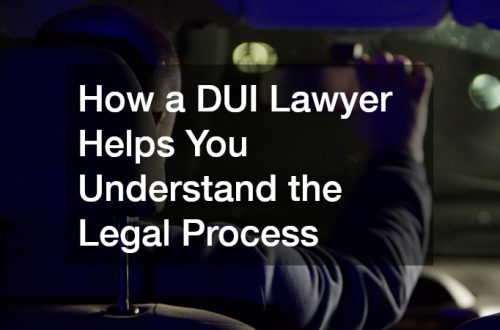
When you need an attorney, it is helpful to understand the differences between them so you can pick the right one for you. Depending on your legal needs, it may be in your best interest to understand the difference between a trial attorney vs defense attorney. This guide provides you with all the information you need.
What Does a Criminal Defense Attorney Do?
When you want to understand the difference between a trial attorney vs defense attorney, you should start with a criminal defense attorney. These lawyers advocate on behalf of someone accused of criminal activity. Their role is to ensure that the justice system upholds their basic rights fairly. You may find a criminal defense lawyer working as a public defender or a private attorney in a criminal defense law firm.
Criminal defense lawyers tend to appear in court more frequently than other types of lawyers, especially if a case goes to trial. These attorneys research facts, investigate the case against their clients and try to negotiate deals with prosecutors. Negotiating deals could include reduced bail, reduced charges, and reduced sentences. In addition, criminal defense attorneys examine witnesses, help formulate a plea, analyze the prosecutor’s case, and understand the potential sentences.
They review search and seizure procedures, question witnesses, and gather evidence. Defense counsel advises on potential immigration consequences or other consequences of a plea, conviction, or criminal record. Defense counsel provides more personal services by giving the defendant the reality of the situation and all the possible outcomes. They understand how to navigate the justice system, and a defendant may have fears and frustrations and fears.

What Does a Trial Attorney Do?
When understanding the difference between a trial attorney vs defense attorney, you should have knowledge of both types of attorneys. Trial attorneys are fundamental to a case that is going to trial. They have a deep understanding of the way the legal system works. They know the entire process that takes place during a trial. A trial attorney is an expert at assembling a team for the defense at trial. The role of the trial attorney is to represent clients in civil or criminal litigation.
They play a vital role in preparing the case for trial. This role includes building a record, contacting and preparing witnesses, and gathering evidence. They also handle scheduling, arguing motions, and play a role in selecting members of the jury. Trial attorneys understand how to get the best for their clients. Some of the ways they do this is through direct examination and cross-examination. A trial attorney’s role is to deliver the most compelling opening statement and closing arguments possible.
You want a trial attorney that works well under pressure because most courtrooms are high-pressure situations. They must communicate well and have a presence. Their goal is to fight to win.
When Would I Need a Family Lawyer?
When you think about the difference between a trial attorney vs defense attorney, you might not immediately think of a divorce attorney. Most people hope their divorce can be settled out of court and without a trial. However, that isn’t always the case, and some family lawyers have to go to trial.
The typical responsibilities of a family lawyer include items such as writing prenuptial agreements, drafting contracts or negotiations, counseling clients on legal options, or resolving familial disputes. They may also represent individuals as a guardianship attorney. A family lawyer also helps victims of domestic violence. They can obtain restraining orders, file for separation, and protect the rights of the victim.
The scope of a family lawyer is broad and wide. They handle the division of marital assets, child custody, and alimony. But they can also handle any domestic relations or family-related issues that might include adoption, paternity, juvenile delinquency matters, and child welfare. They also deal with the enforcement of the court order. This is often a lawsuit that is filed to ask for the court’s assistance in enforcing a party to obey a court order that already exists. A common enforcement request is typically centered around child support and visitation.

Should I Consider a Bankruptcy Lawyer?
While most bankruptcy cases don’t go to trial because a lot of the work for these cases is administrative and doesn’t require a formal hearing. Bankruptcy lawyers may need to go to trial in certain situations. When there is a dispute between the debtor and creditors, or when there are objections to bankruptcy filing, they appear in court. They may also have to present motions or petitions and argue in front of a judge. In these cases, the court may hold a trial to resolve the issues. This is an essential distinction between a trial attorney vs defense attorney.
A bankruptcy lawyer offers legal services to help you understand bankruptcy and its complex legal process. They must have a detailed understanding of federal and state laws. In addition, they must be well-versed in court rules and procedures. If you’re considering filing for bankruptcy, an experienced bankruptcy lawyer will prove incredibly helpful. A bankruptcy lawyer can guide you through the entire bankruptcy process. In addition, they will explain and help you understand which type of bankruptcy is best for your situation.
In addition, they will help you with the forms and documents that need to be filed and what deadlines need to be met. The forms are complex, and you must adhere to strict deadlines. A bankruptcy lawyer can help you avoid costly mistakes and errors that could delay your bankruptcy or even lead to dismissal.
What is Covered Under Corporate Law?
Business lawyers and corporate lawyers are one in the same and handle all legal matters for businesses to ensure all company transactions fall within the scope of regulations and laws. Corporate law is the legal framework that governs the formation, operation, and dissolution of corporations. It is a complex area of law that encompasses various aspects of corporate management and operations.
Some of the common legal work they perform includes the formation or dissolution of businesses, mergers, acquisitions, patents, intellectual property, and liability disputes. On a typical day, corporate attorneys could handle tasks including writing and revising legal documents, negotiating contracts, and conducting legal research. When understanding the difference between a trial attorney vs defense attorney, you should know that many have experience as trial lawyers and may appear in court on behalf of their clients.
However, the majority of corporate lawyers primarily focus on transactional work, such as negotiating and drafting contracts and providing general corporate advice. Many corporate lawyers are working to help their clients avoid disputes and litigation as much as possible. Corporate lawyers also deal with intellectual property laws to protect the creation of the human mind. This includes items like inventions, trademarks, and copyrights. Corporations must comply with these laws and take steps to protect their intellectual property rights.

How Can an Estate Planning Attorney Help?
When thinking about estate planning and an estate attorney, you may wonder how they compare to a trial attorney vs defense attorney. They are neither trial nor defense attorney because their focus is mainly based on helping clients plan for their future and protecting their assets. Estate planning lawyers are well-versed in all the details of property rights, wills, probate, and trusts. They also provide legal advice and assistance to ensure client assets, will, or trust is handled correctly.
Estate planning ensures all tax and legal issues are properly addressed. This can be a delicate process, so estate planning lawyers help clients evaluate their assets and liabilities and aid them in their decision-making. An estate planning attorney works with clients to develop an estate plan that reflects their wishes and protects their assets. This could include creating a will or trust, establishing powers of attorney, and designating beneficiaries. In addition, this type of lawyer advises you on minimizing tax liability for your estate and heirs. This could include setting up trusts, creating charitable gifts, or taking advantage of other tax planning strategies.
An estate planning attorney can help heirs navigate the probate process after a death. This could include assisting with the distribution of assets, resolving disputes, or managing tax and legal issues.
When Would I Need an Agricultural Attorney?
An agricultural attorney provides legal advice and representation in a wide range of matters related to the agriculture industry. These lawyers ensure that your business complies with legal requirements, protects your assets, and provides you with the legal representation you need in a dispute or litigation. When thinking about a trial attorney vs defense attorney, an agricultural attorney can be a trial attorney but doesn’t have to be.
You may consider an agricultural attorney in a variety of situations. These situations could include negotiating and drafting contracts with vendors, suppliers, distributors, and other parties needed for your business. Anytime you are buying or selling farmland, an agricultural attorney can help ensure that the transaction complies with all legal requirements, such as zoning and environmental regulations. Within the agriculture industry are federal and state regulations, such as those related to food safety, environmental protection, and labor laws with which you must comply. An agricultural attorney ensures you understand and comply with them. If you have created a new crop or plant variety, agricultural attorneys help you protect your intellectual property rights through patents, trademarks, or other legal means.

What if I Need Help with Tax Law?
When understanding the roles of a trial attorney vs defense attorney, a trial attorney could be helpful when it comes to tax law. First, however, you need a trial attorney that is knowledgeable about tax law. This is especially true if you have a tax dispute or litigation. A tax attorney can represent you before the IRS or in court. They will prepare and present arguments, negotiate with the government, and advocate for your interests in litigation.
Tax lawyers understand all the details of all tax laws and regulations. They may work for nonprofit organizations, corporations, law firms, accounting firms, or government agencies. Their main responsibilities include tax planning, research, and interpreting tax law and how it affects their clients. In addition, tax laws are complex and constantly changing, so tax lawyers must closely follow tax law developments, court opinions, and IRS rulings.
A tax attorney is also helpful because they can create a tax plan that minimizes personal tax liability and maximizes tax savings. They also advise on business, estate, or personal financial tax strategies. Tax attorneys help structure business transactions to minimize tax liability and maximize savings. They can advise about the tax implications of mergers and acquisitions, corporate reorganizations, and other business transactions.
When Do I Need a Disability Attorney?
While a disability attorney does not necessarily fall into the category of trial attorney vs defense attorney, they may have to appear in court or in front of a judge. You may need disability legal representation in a number of situations. This includes applying for Social Security Disability benefits. For example, if you have a disability that stops you from working, you may be eligible for these benefits. A disability attorney can help you navigate the application process, gather necessary documentation, and present your case.
Suppose you have a disability and believe that you have been discriminated against in employment. In that case, a disability attorney can help you file the appropriate complaint with the Equal Employment Opportunity Commission (EEOC) and represent you in any legal proceedings. When you are injured and are disabled as a result, a disability attorney can help you pursue compensation for your injuries. Disability attorneys provide you with legal advice and representation in a wide range of matters related to disability, including eligibility for government benefits, employment discrimination, and personal injury.
When you need an attorney, it’s important to understand your direct needs so you can find the appropriate lawyer. In addition, you want to hire a lawyer that is experienced with your specific situation to ensure you have the best legal representation possible.





